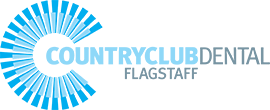Can tooth pain and a sinus infection be related? Although tooth pain is commonly caused by tooth decay and oral infections, sinus infections can also be at fault.
The sinuses are air pockets in your skull located near your eyes, nose, cheekbones, and forehead. These spaces can sometimes fill with fluid and germs, which causes an infection called sinusitis. Your sinuses are located close enough to your mouth that the pain and pressure from an infection can also make your teeth and jaw hurt.
But having a sinus infection and tooth pain at the same time doesn’t always mean the infection is responsible. Let’s take a look at when and how sinusitis can lead to a toothache.
How to Know When Your Teeth Hurt From a Sinus Infection (or Something Else)
Although sinus infections can make your teeth hurt, tooth pain can also be a sign of a serious dental issue. Because a sinus infection can develop alongside other issues like gum disease and cavities that also cause pain, it’s important to see your dentist when you first start feeling tooth pain so they can diagnose the root of the problem.
One major clue that sinusitis isn’t to blame is when the toothache sticks around after your sinus infection clears up. And, because tooth pain from sinus pressure is usually located in several of the upper back molars, there could be another issue at hand if only your bottom teeth hurt or only a single tooth is affected.
If you have tender, swollen, red, receding, or bleeding gums, then you could have gum disease on top of the sinus infection. Gum disease requires early intervention to prevent tooth decay and tooth loss.
Sensitivity and discoloration in a single tooth are both signs of a cavity, which also requires immediate treatment. Never ignore tooth pain because you also have a sinus infection. If your teeth hurt, see a dentist!
12 Signs You Have a Sinus Infection
To figure out if sinusitis is the cause of your tooth pain, you must determine whether or not you have a sinus infection in the first place.
Symptoms of sinusitis include:
- Facial pressure and/or pain around the eyes, nose, or forehead
- Nasal congestion or runny nose
- Thick, discolored mucus
- Foul-tasting nasal drip
- Lost sense of taste and smell
- Earache or ear fullness
- Bad breath
- Sore throat
- Hoarseness
- Fever
- Fatigue
- Pain in the upper teeth
Can a Tooth Infection Lead to a Sinus Infection?
Sinus infections and toothaches are related in more ways than one. When the root of an upper tooth becomes infected and forms an abscess, harmful bacteria can travel from the tooth to the sinuses and cause sinusitis.
Signs of a tooth infection include:
- A constant, severe toothache that spreads to the jawbone, neck, or ear
- Pain or discomfort when chewing or biting
- Sensitivity to hot and cold
- Tender, swollen lymph nodes in the jaw or neck
- Facial swelling
- Fever
- Bad breath
- Sudden foul-tasting fluid in the mouth from a ruptured abscess
If you experience any of the above symptoms, see your dentist right away. When left untreated, tooth infections can spread to other parts of the body, including the brain, and become life-threatening.
Sinus Infection and Toothache Remedies
Try the following methods to relieve tooth pain from sinus pressure:
- Stay hydrated to thin out sinus mucus
- Use an over-the-counter decongestant or saline nasal spray (never use for more than 3 days in a row)
- Open up your sinuses by breathing in steam from boiling water or a hot shower
- Apply a warm compress to your nose and forehead
Toothache Treatment in Flagstaff, Arizona
If you have a toothache from a tooth infection or other dental issue, contact Country Club Dental for treatment. We’ll examine your mouth and discuss your symptoms to get to the bottom of what’s causing your pain.
Letting a toothache go untreated can lead to serious consequences and invasive treatments. Give us a call at 928-526-4314 today to make an emergency appointment.
Images used under creative commons license – commercial use (3/7/2023). Photo by Andrea Piacquadio on Pexels


